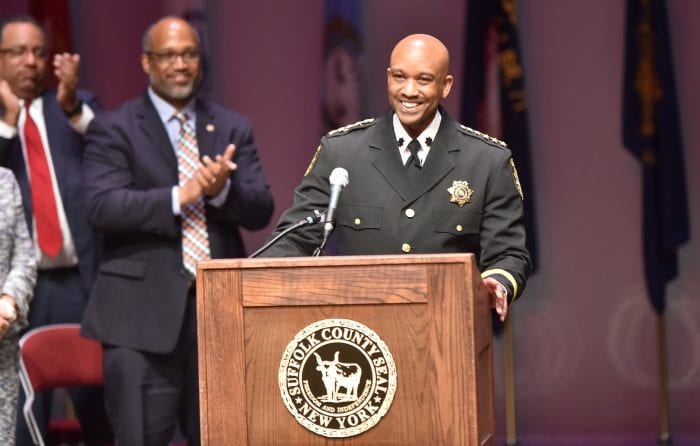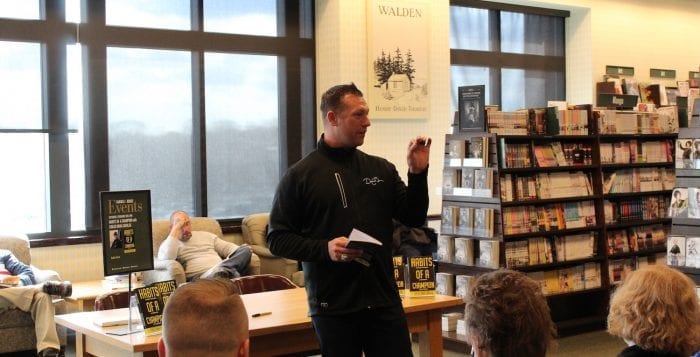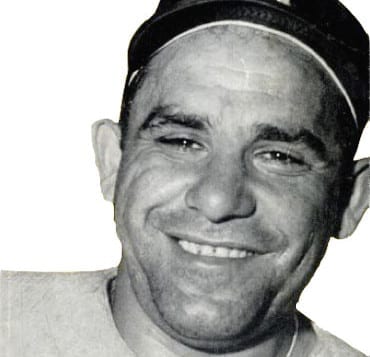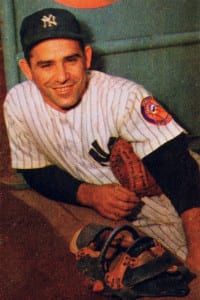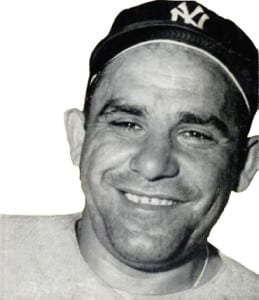By Rich Acritelli
In honor of Black History Month, Errol Toulon Jr. (D), of Lake Grove, is the first African American Suffolk County sheriff. Ever since his youth through the lessons that he learned from his father, Toulon has been motivated to achieve his duty and responsibilities.
As a kid, he asked his father, a longtime correction officer, what he did for a living. His dad replied, “We rehabilitate individuals that are incarcerated, we never throw away the key and we try to help these people safely return back to society.”
The story of Toulon Jr. began in the Bronx, where he was born in 1962, and he lived in the city until 1990.
Yankee batboy
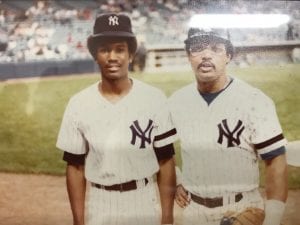
A talented baseball player who excelled as a center fielder and a leadoff hitter during his high school and college years, Toulon had the unique chance of being a batboy for the New York Yankees in 1979 through 1980.
He was in the locker room to observe the impressive leadership skills and character of the late Yankee great catcher Thurman Munson. In the Bronx, Toulon watched Billy Martin manage the baseball stars of Reggie Jackson and Bobby Murcer, and he also met boxing champ Roberto Durán.
As a young man in the Yankee Clubhouse, Toulon encountered a young boy, and asked him his name. It was Hal Steinbrenner, who now owns the team after his father George.
The former batboy ended up becoming the first African American sheriff of Suffolk County, and had a wonderful time being welcomed back by senior management of the Yankees. Players like Ron Blomberg and Mickey Rivers were pleased to see their former batboy who has always worked to protect his community. Still to this day, Toulon is an avid baseball fan who glowingly recalls his special time in pinstripes around the “Boys of Summer.”
City correction officer

Photo from Errol Toulon Jr.
During those earlier years, Toulon took the city correction officer exam, after he completed an associate’s degree in business. As a 20-year-old, he became one of the youngest recruits within the New York City Department of Correction.
He observed the older jails that were built from the 1930s through 1960s, were cold, secured with steel, and lacking any of the advancements of the penitentiaries of today. Early in his career, Toulon was impacted by watching inmates hold few liberties and living in poor conditions.
There were dangerous moments during fights, riots and emergencies, that saw officers isolated and unable to see each other where their own safety was compromised. Over the years, Toulon has learned from these lessons to ensure the constant support of the current officers of his department.
As a lifelong officer, a captain and official, Toulon always follow the examples that were established by his father. Toulon Sr. was employed by the NYC Department of Correction for 36 years in positions ranging from officer to a warden at Rikers Island.
From his dad, he learned the value of attention to detail and always treating his staff with the utmost amount of respect. Whether it was his junior years as a correction officer or as the present Suffolk County sheriff, Toulon never loses focus on the evolving complexities of operating the county system of imprisonment. Over the past decades, he has been involved in hostage crisis, handling drug abuse, attempted escapes, and seizure of guns and contraband that were smuggled into jails by prisoners.
Suffolk County sheriff

Toulon has always believed in the necessity in analyzing the complexity of criminal justice problems that are always evolving. There was recently a major riot in St. Louis, where the inmates broke windows and set debris on fire. Always understanding the usefulness of information, Toulon’s Sheriff’s Office examines these situations by calling different corrections agencies around the country. They try to determine the root of local or national incidents and utilize these resources to be prepared to sufficiently handle these concerns in Suffolk County.
Town of Brookhaven Councilwoman Jane Bonner (R-Rocky Point) has worked with him through their tenures in office.
“Sheriff Toulon leads a proud department of men and women dedicated to upholding the law and running the Suffolk County Correctional Facility,” she said.
There is always the major process of investigating prisoner grievances over health care, food, communication with family members, religious services and more. Toulon tries to improve these concerns before they materialize into a major crisis.
During his career, he has dealt with the Ebola and swine flu outbreaks and the health implications within the jail environment. Through the determination to always contain the strength of these sicknesses, protective measures were already established within the county jails before the first COVID-19 case hit New York in last March.
Due to the pandemic, new ways had to be developed to handle the services that were needed for the prisoners. Toulon’s office made a goal in always sharing current information on the threats and changes that COVID-19 presented to both the outside world and the jails. The virus prevented family visits, but prisoners were allocated two extra calls a week, pictures of loved ones were printed for inmates, and there were virtual substance and psychological programs.
Professional and educational experiences

Education has always been an important part of Toulon’s life which he has incorporated into his many correctional positions. He has a doctorate in educational administration, an advanced certificate in Homeland Security Management and an MBA.
Since his election as sheriff, Toulon has spoken to many educational programs with local school districts to address the daily concerns that his department handles, always with a positive demeanor.
VFW Post 6249 Rocky Point Comdr. Joe Cognitore has always viewed Toulon “as an upstanding and an energetic people person that has always protected our residents, worked well with community leaders, aided veterans that have fallen on criminal times in jail, and he has helped create local 9/11 memorials.”
For two years, Toulon taught at Dowling College as an adjunct faculty member. He planned to instruct students at St. John’s University, but was unable to do so due to his present position.
Harvard University has invited Toulon to address its student body on his professional and educational experiences. While he enjoys his current position and is hopeful that he will be reelected to another term, Toulon enjoys teaching, and he would like to teach again. A leader with a tremendous amount of energy, there have been some personal battles that he has had to endure as a survivor of pancreatic cancer and Hodgkin’s lymphoma.
Whereas Toulon is determined to have a secure prison system within the county, provide resources and support for his officers, he also wants to ensure that prisoners do not return. Through the Sheriff’s Transition and Reentry Team, known as the START program, correction officers help inmates find housing, jobs, medical services and food, and to become productive and safe citizens.

